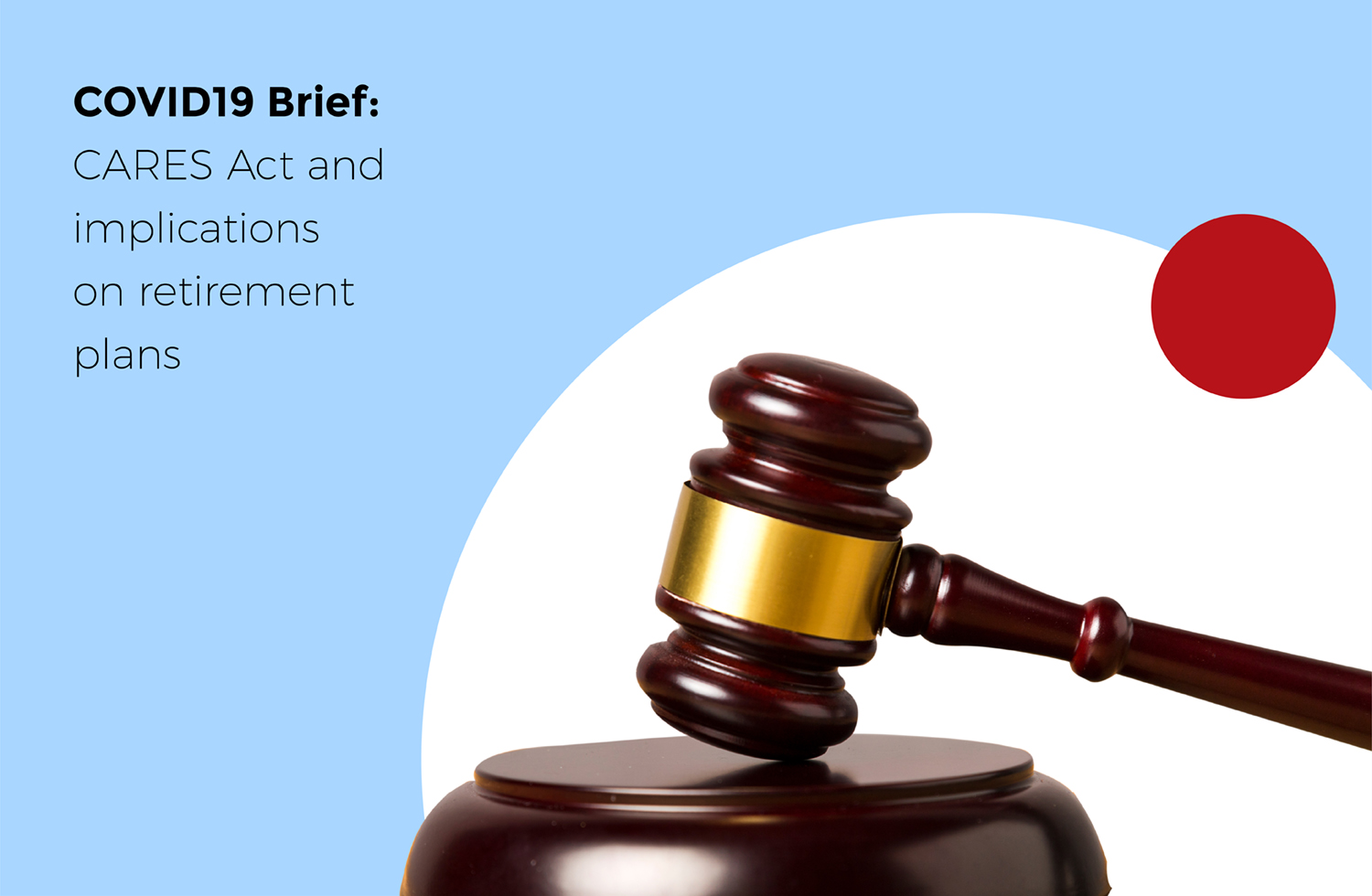
The Coronavirus Aid, Relief, and Economic Security (CARES) Act provides fast and direct economic assistance for American workers, families, and small businesses, and preserve jobs for the American industries.
The changes that pertain to the retirement plan industry and impact the retirees’ retirement income strategy are:
- (Sec. 101) The bill amends the Internal Revenue Code to revise requirements for multiple employer pension plans and pooled employer plans. It provides that failure of one employer in a multiple employer retirement plan to meet plan requirements will not cause all plans to fail and that assets in the failed plan will be transferred to another plan. It also establishes pooled employer plans that do not require a common characteristic.
- (Sec. 102) The bill increases the cap for automatic contributions to pension plans from 10% to 15% of employee compensation, beginning after 2019.
- (Sec. 103) The bill limits the annual safe harbor notice to matching contribution plans and permits amendments to non-elective status at any time before the 30th day before the close of the plan year. Amendments may be made after that date if the amendment provides for a non-elective contribution of at least 4% of compensation for all eligible employees and the plan is amended no later than the last day for distributing excess contributions for the plan year.
- (Sec. 104) The bill increases the tax credit for small employer pension plan start-up costs.
- (Sec. 105) The bill creates a new three-year tax credit for small employers for start-up costs for new pension plans that include automatic enrollment.
- (Sec. 106) The bill treats stipends and non-tuition fellowships as compensation for purposes of the retirement savings tax deduction.
- (Sec. 107) The prohibition on contributions to a traditional Individual Retirement Account (IRA) by an individual who has reached age 70½ years is repealed.
- (Sec. 112) The bill allows certain long-term employees who work at least 500 hours in 3 consecutive 12-month periods and have reached age 21 to participate in qualified cash or deferred arrangements.
- (Sec. 113) The bill permits penalty-free withdrawals from retirement plans for expenses related to the birth of a child or adoption.
- (Sec. 114) The bill increases the age for mandatory distributions from 70½ years to 72 years.
- (Sec. 116) The bill treats difficulty of care payments to healthcare workers as earned income for retirement plan purposes.
- (Sec. 202) The bill requires the filing of a consolidated Form 5500 for similar retirement plans.
- (Sec. 203) The bill requires benefit statements provided to Defined Contribution plan participants to include a lifetime income disclosure at least once during any 12 months.
- (Sec. 205) The bill modifies pension plan non-discrimination rules for closed plans to permit existing participants to continue to accrue benefits.
- (Sec. 401) The bill modifies Required Minimum Distribution (RMD) rules for Defined Contribution plans and IRA balances upon the death of the account holder. All distributions must be made by the end of the 10th year after the death, except for distributions made to certain eligible designated beneficiaries.
